Abstract
112 of an original sample of 134 children with febrile convulsions were reviewed between 8 years and 9 years 10 months after their initial attack. 17% of those followed up had had at least one spontaneous fit. A significant correlation was found with perinatal abnormalities. 12% had continuing recurrent fits. Persisting grand mal occurred most commonly in lower social class children who had had perinatal abnormalities and continued to have long-term neurological disorders. Psychomotor epilepsy correlated significantly with a prolonged or repeated initial convulsion with unilateral features. It is suggested that the development of grand mal and temporal lobe epilepsies after convulsions with fever are determined by different mechanisms.
Full text
PDF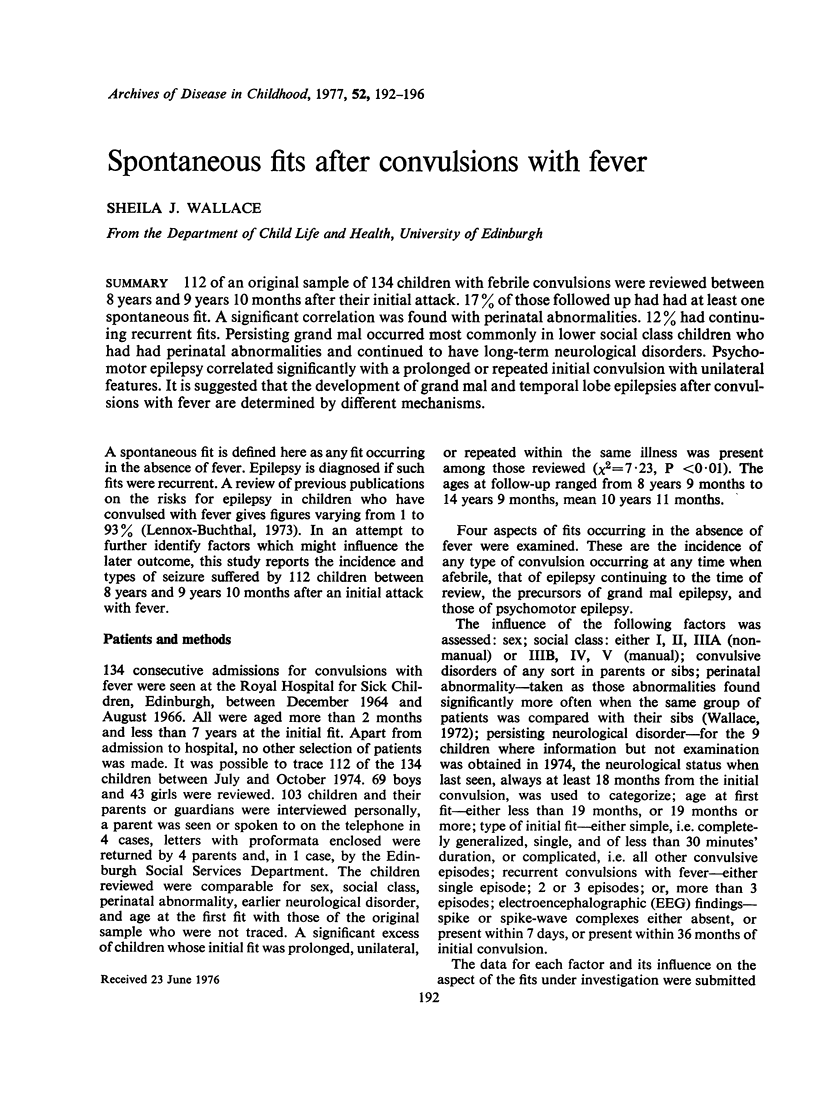
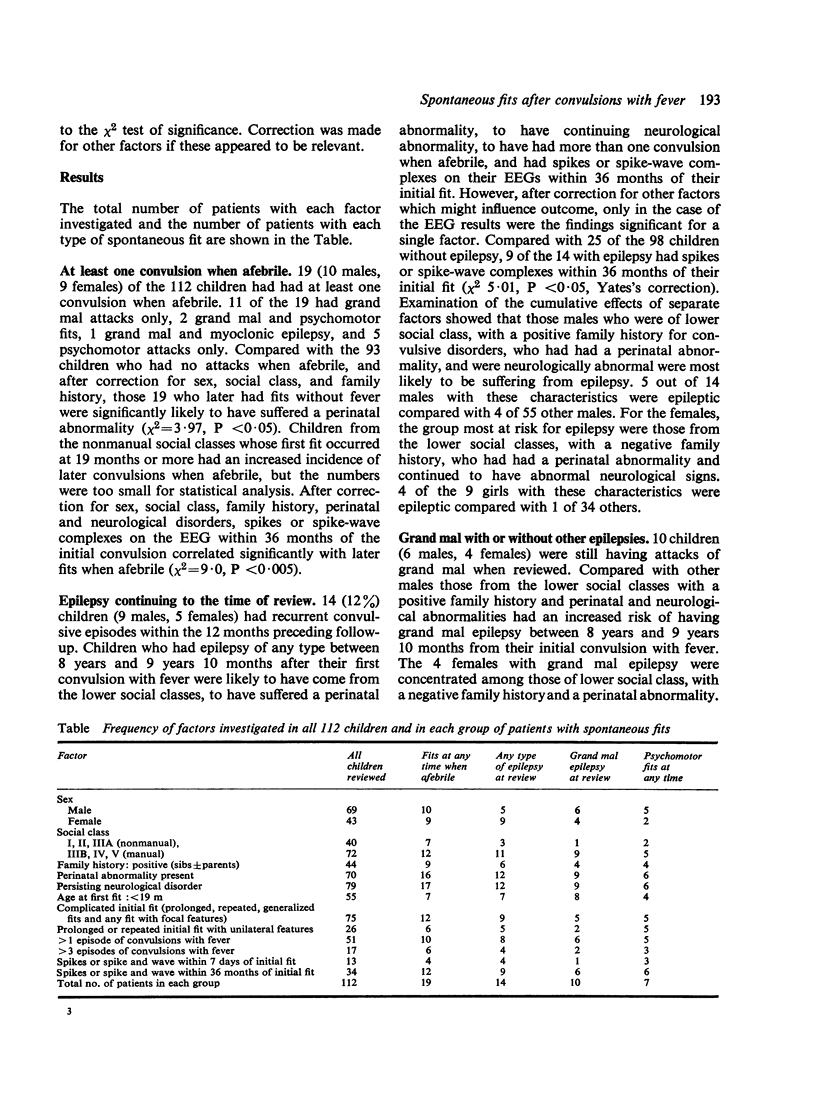
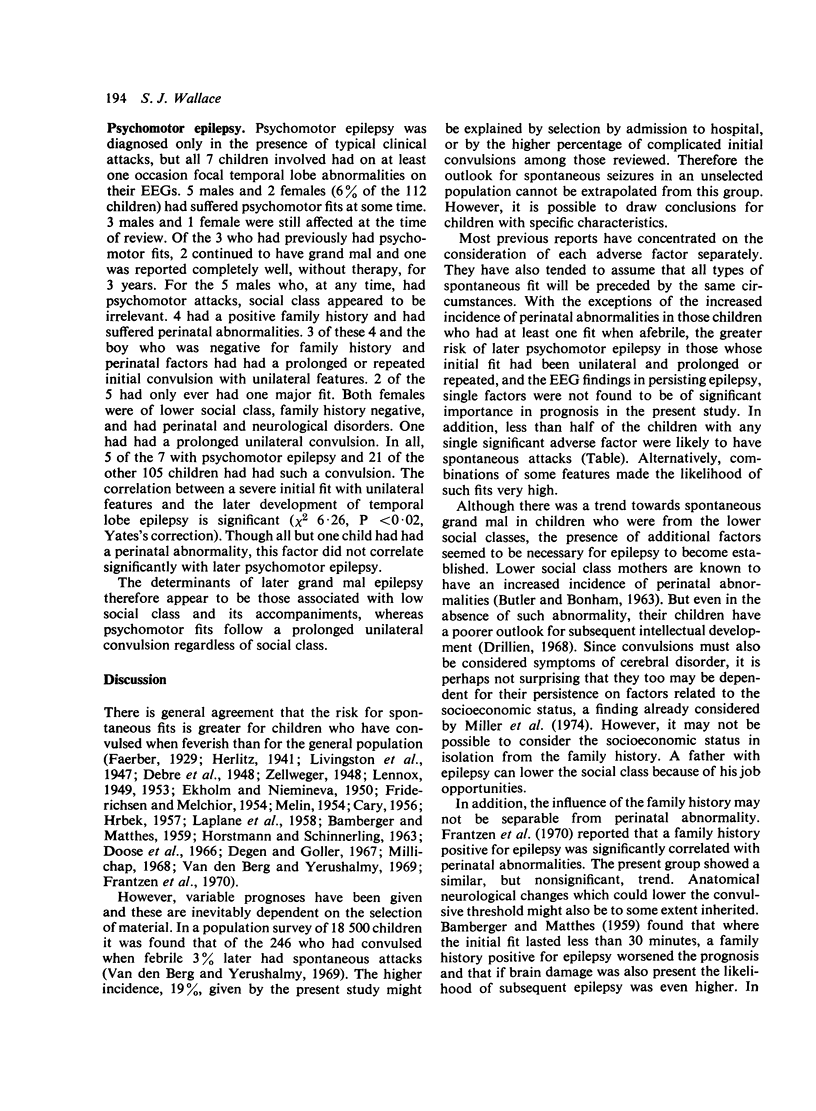
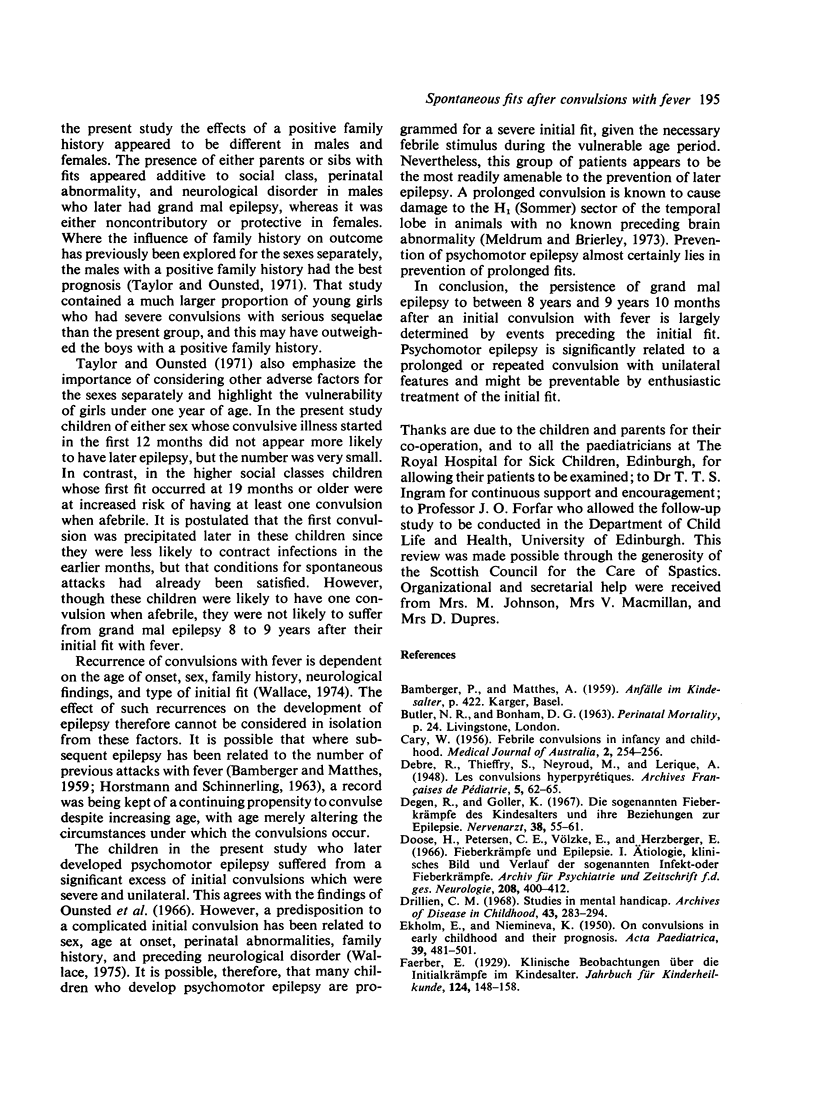
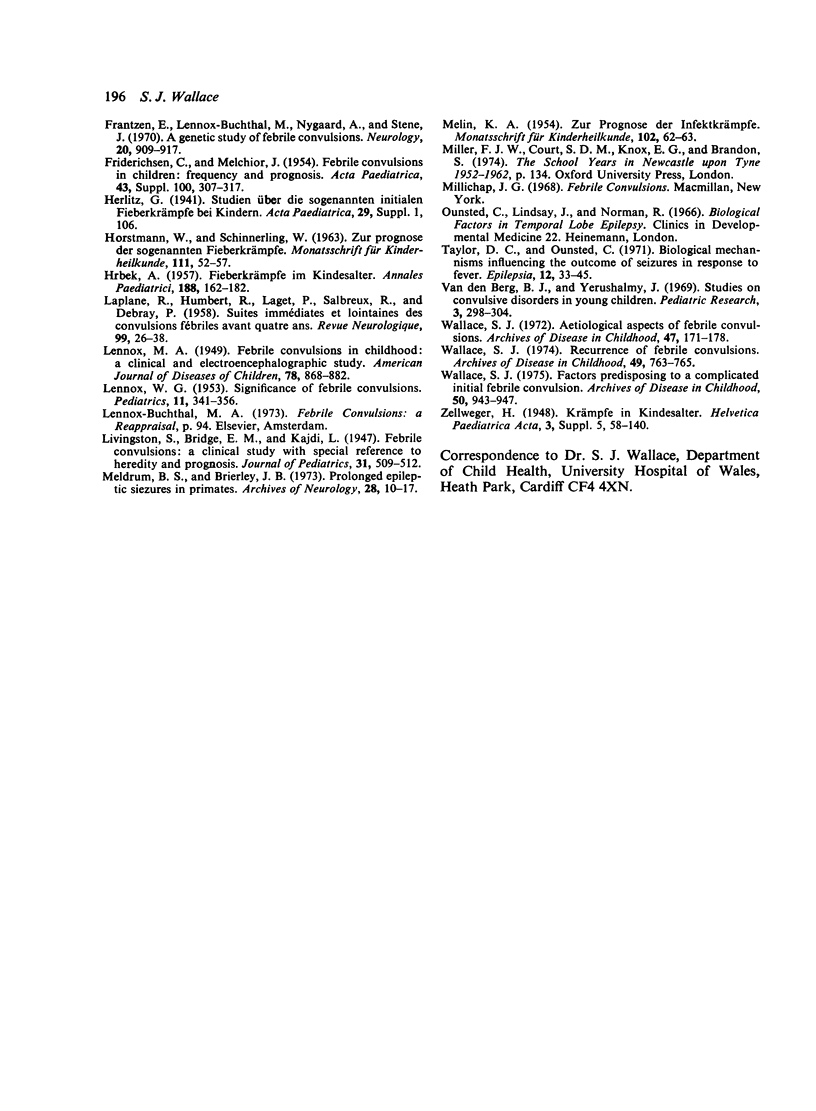
Selected References
These references are in PubMed. This may not be the complete list of references from this article.
- CARY W. Febrile convulsions in infancy and childhood. Med J Aust. 1956 Aug 18;43(7):254–256. doi: 10.5694/j.1326-5377.1956.tb56641.x. [DOI] [PubMed] [Google Scholar]
- Degen R., Goller K. Die sogenannten Fieberkrämpfe des Kindesalters und ihre Beziehungen zur Epilepsie. Nervenarzt. 1967 Feb;38(2):55–61. [PubMed] [Google Scholar]
- Doose H., Petersen C. E., Völzke E., Herzberger E. Fieberkrämpfe und Epilepsie. I. Atiologie, klinisches Bild und Verlauf der sogenannten Infekt- oder Fieberkrämpfe. Arch Psychiatr Nervenkr (1970) 1966;208(4):400–412. doi: 10.1007/BF00343054. [DOI] [PubMed] [Google Scholar]
- Drillien C. M. Studies in mental handicap. II. Some obstetric factors of possible aetiological significance. Arch Dis Child. 1968 Jun;43(229):283–294. doi: 10.1136/adc.43.229.283. [DOI] [PMC free article] [PubMed] [Google Scholar]
- EKHOLM E., NIEMINEVA K. On convulsions in early childhood and their prognosis; an investigation with follow-up examinations of patients treated for convulsions at the Children's Clinic of Helsinki University. Acta Paediatr. 1950;39(6):481–501. doi: 10.1111/j.1651-2227.1950.tb08545.x. [DOI] [PubMed] [Google Scholar]
- FRIDERICHSEN C., MELCHIOR J. Febrile convulsions in children, their frequency and prognosis. Acta Paediatr Suppl. 1954;43(100):307–317. doi: 10.1111/j.1651-2227.1954.tb15480.x. [DOI] [PubMed] [Google Scholar]
- Frantzen E., Lennox-Buchthal M., Nygaard A., Stene J. A genetic study of febrile convulsions. Neurology. 1970 Sep;20(9):909–917. doi: 10.1212/wnl.20.9.909. [DOI] [PubMed] [Google Scholar]
- HRBEK A. Fieberkrämpfe im Kindesalter. Ann Paediatr. 1957 Mar;188(3):162–182. [PubMed] [Google Scholar]
- LAPLANE R., HUMBERT R., LAGET P., SALBREUX R., DEBRAY P. Suites immédiates et lointaines des convulsions fébriles avant quatre ans. Rev Neurol (Paris) 1958 Jul;99(1):26–38. [PubMed] [Google Scholar]
- LENNOX M. A. Febrile convulsions in childhood; a clinical and electroencephalographic study. Am J Dis Child. 1949 Dec;78(6):868–882. doi: 10.1001/archpedi.1949.02030050887003. [DOI] [PubMed] [Google Scholar]
- LENNOX W. G. Significance of febrile convulsions. Pediatrics. 1953 Apr;11(4):341–357. [PubMed] [Google Scholar]
- MELIN K. A. Zur Prognose der Infektkrämpfe. Monatsschr Kinderheilkd. 1954 Feb;102(2):62–63. [PubMed] [Google Scholar]
- Meldrum B. S., Brierley J. B. Prolonged epileptic seizures in primates. Ischemic cell change and its relation to ictal physiological events. Arch Neurol. 1973 Jan;28(1):10–17. doi: 10.1001/archneur.1973.00490190028002. [DOI] [PubMed] [Google Scholar]
- Taylor D. C., Ounsted C. Biological mechanisms influencing the outcome of seizures in response to fever. Epilepsia. 1971 Mar;12(1):33–45. doi: 10.1111/j.1528-1157.1971.tb03913.x. [DOI] [PubMed] [Google Scholar]
- Van der Berg B. J., Yerushalmy J. Studies on convulsive disorders in young children. I. Incidence of febrile and nonfebrile convulsions by age and other factors. Pediatr Res. 1969 Jul;3(4):298–304. doi: 10.1203/00006450-196907000-00005. [DOI] [PubMed] [Google Scholar]
- Wallace S. J. Aetiological aspects of febrile convulsions. Pregnancy and perinatal factors. Arch Dis Child. 1972 Apr;47(252):171–178. doi: 10.1136/adc.47.252.171. [DOI] [PMC free article] [PubMed] [Google Scholar]
- Wallace S. J. Factors predisposing to a complicated initial febrile convulsion. Arch Dis Child. 1975 Dec;50(12):943–947. doi: 10.1136/adc.50.12.943. [DOI] [PMC free article] [PubMed] [Google Scholar]
- Wallace S. J. Recurrence of febrile convulsions. Arch Dis Child. 1974 Oct;49(10):763–765. doi: 10.1136/adc.49.10.763. [DOI] [PMC free article] [PubMed] [Google Scholar]


